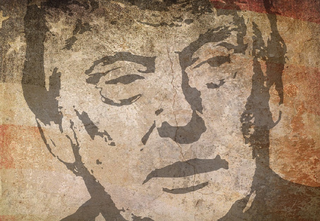Leadership
Why We Marched for Science
Evidence-based input needed among elected officials.
Posted February 27, 2018

So in Donald Trump’s newest parade in media outlets across the world, he’s been quoted as saying that if he were on duty at the high school in Parkland, Florida, he would have rushed in to try to save the kids. In his words, “... even if I didn’t have a weapon ...” This is the world we live in right now.
As a scholar in the behavioral sciences, this comment to the press raises two important points for me, both of which I’ll delineate here. First off, you know, Mr. Trump might well believe what he said, but a mountain of research in social psychology, going back decades, has demonstrated that people often act in ways very differently from how they think they would act when faced with actual situations (see Geher et al., 2002). So putting aside for a second whether running unarmed into a building where a madman with an AR-15 is on a shooting spree is a good idea, social psychological research into this kind of self-reported claim gives reason to questions the claim's validity.
This knee-jerk kind of commentary that we get from so many of our elected officials these days, in my mind, speaks to a broader problem—one that sits at the interface of science and politics.

Why We Marched for Science
Remember back in March of 2017 a bunch of us took to the streets to “march for science?” Well, to my mind, this is why. Science is, as I see it, the single best process for understanding the nature and causes of all phenomena in the observable world. And science is based on methodological and statistical processes that have been honed by millions of sharp and hard-working minds across generations of humans. The scientific method, then, can’t really be beaten when it comes to figuring out the problems in the world and how to best address them.

I think that thousands of people came out of the woodwork in cities across the nation to march for science last year because there was concern that, based on his decision-making style, our new president, Donald Trump, might not be a huge advocate of science.
I have to say that about a year later, it looks like our cause for concern was justified.
The Science and Politics of Research into Gun Violence
On the heels of the tragedy in Parkland, the issue of gun violence has, once again, been catapulted to the front of the national stage. As a behavioral scientist, I have to say I have been shocked and dismayed at some of the discourse surrounding this issue. To the mind of myself as well as to the minds of many others, we absolutely must use the best science-based information that we have to address this issue. From this vantage point, it’s been disappointing to learn about things such as the Dickey Amendment, which is a federal mandate that literally forbids the Center for Disease Control (CDC) to fund research into gun violence. Yes, that’s right. When I first heard about this, I was like “that sounds impossible.” Well, it’s actually a real thing (here is a report from the American Psychological Association that addresses this point).
Further, as addressed in detail in a different post of mine related to this issue, the White House is now banning the use of the term “science-based” in budgetary materials developed by the CDC. And as impossible as this also seems, I am not making this up either.
A Potential Role for Science in Shaping Policy
Hey, bad news: The country is a mess right now. And as active members of the national community, it is, of course, up to each and every one of us to take steps to get things back on track. We have some of the greatest scientists in the world right here in the USA, and many scientists study issues that connect strongly with public policy. Issues such as gun violence, mental health, disease, climate, etc.
We need leadership in this country that uses a science-based approach to solving problems—now more than ever. We don’t need leadership that makes rash decisions off the cuff—lacking not only in thought but, even more importantly, lacking in the consultation of the relevant scientific literature.
Bottom Line
Scientists conduct research on thousands of topics each and every day, using the most advanced methods and techniques to help shed light on all kinds of questions. We need leaders at all levels who consult scientific findings and/or defer to scientists in appropriate fields in making decisions. The future is our shared future, and our elected officials need to take this point genuinely into account.
Here is to science. And here is to the consultation of science-based findings to help get this world back on track.
References
Geher, G., Bauman, K.P., Hubbard, S.E.K., & Legare, J. (2002). Self and other obedience estimates: Biases and moderators. The Journal of Social Psychology, 142, 677-689.




